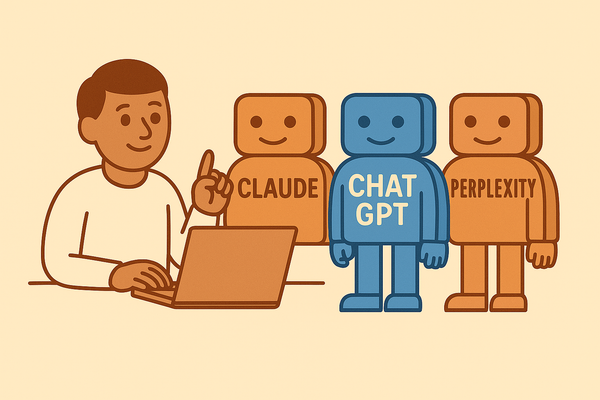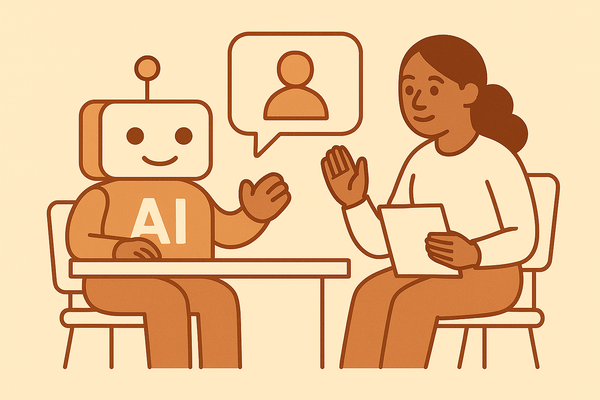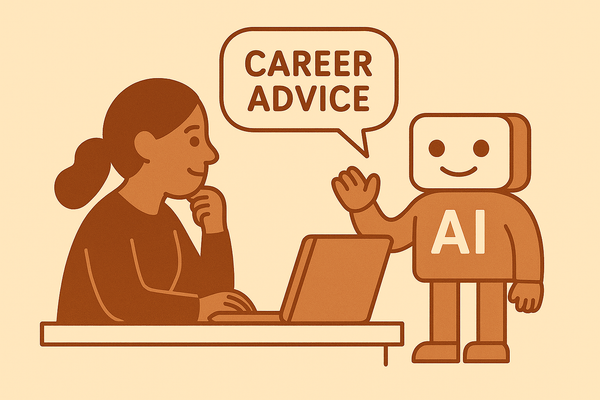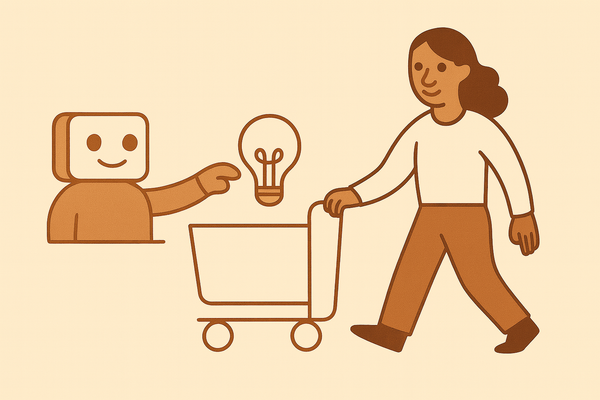Why You’ll Be an Entrepreneur Whether You Like It or Not
AI is turning every knowledge worker into a business of one. Here’s what that means for your future.
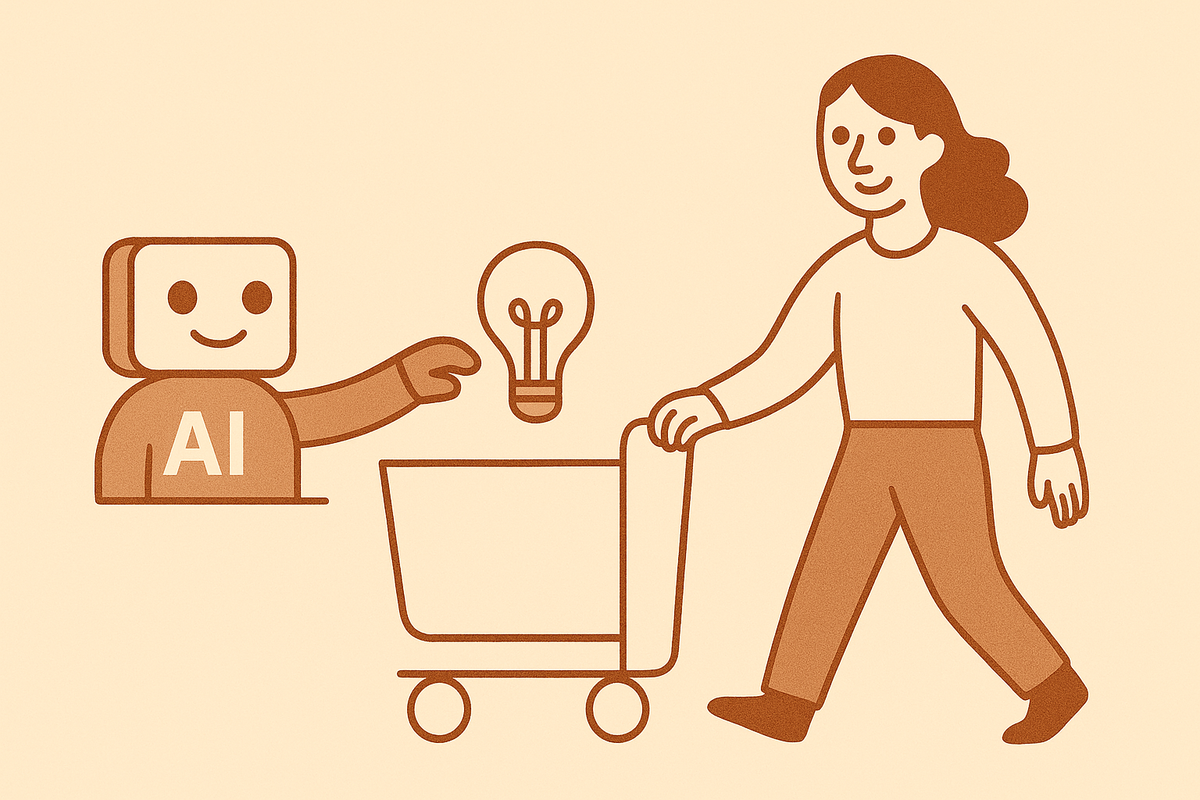
The Workquake Has Already Started
Think back to 2005.
There was no iPhone. No Slack. No cloud-based docs. AI was a research term, not something writing your emails or building your slide decks. Twenty years later, we’re using AI copilots to draft proposals, write code, summarize meetings, and it’s still early.
Now imagine what 2045 looks like.
Here’s my take: most of us won’t “have jobs” the way we do today. Instead, we’ll operate more like businesses of one, whether or not we call ourselves founders. AI won’t just change what we do. It will change how we work, how we are valued, and how we think about our role in the system.
We won’t apply for jobs. We’ll plug into opportunities.
You Will Be a Business of One
Right now, most folks rely on companies to define their value. You’re given a title, a level, a salary band. But in the future, those structures won’t hold.
Instead, value will be fluid and personal. You’ll be paid based on your capabilities, your output, and the unique stack of skills you bring. AI systems will assess your potential not by your resume, but by your real-time learning graph, your past work, and your creative edge.
Everything will be portable: your work, your skills, even your impact history. You won’t start from scratch every time you switch jobs. You’ll bring your system with you.
You won’t need to call yourself an entrepreneur. But you’ll be operating like one.
You Won’t Just Manage AI. You’ll Multiply Yourself
Let’s start with where we are right now.
In 2025, it’s already possible to build a system of AI tools that assist with research, writing, design, planning, scheduling, and outreach. Most haven’t done this yet, but the infrastructure is here. If you’re ambitious and a little technical, you can run a small business or creative practice with no staff, just systems.
Right now, it’s clunky. You’re stitching together tools and cleaning up after the outputs. But the direction is clear. We’re moving from assistance to autonomy.
Now imagine what that looks like in 2045.
You’ll have a digital twin. A persistent, intelligent version of you, trained on your work, your preferences, your tone, your patterns of decision-making. It will attend meetings, summarize conversations, test ideas, and make choices. It will extend your presence without requiring your attention.
You won’t need to be “on” for work to happen. Your system will keep working, even when you’re not.
It’s not unlike Severance, the show where folks split their brains into work and home versions. But instead of splitting your consciousness, your digital twin will be trained to reflect your professional self. It will work on your behalf, even while you rest.
This isn’t automation. This is multiplication.
You will shift from doing the work to designing the system. You’ll spend less time writing emails, and more time training the agent that writes them better than you ever could.
You won’t just lead a team. You’ll lead a version of yourself.
Enjoying this post? Subscribe to my newsletter to get similar posts each week.
You Will Learn Differently and Constantly
Learning used to be episodic. You’d take a course, earn a certificate, or attend a seminar. Then you’d go back to “real work.”
By 2045, that idea will feel ancient.
Learning will be embedded. AI will surface knowledge based on your context, your performance, and your goals. It won’t be something you schedule. It will be something your system feeds you automatically, in the moment you need it.
And it won’t happen on screens.
You will step into immersive simulations. Want to understand a market? Walk through a virtual landscape of its trends and players. Need to explore leadership? Practice in a dynamic scenario with AI feedback tuned to your tone and choices.
You won’t read about strategy. You’ll feel the consequences of a decision as you make it.
Even today’s new skills, like learning to write better prompts, likely won’t not exist. The interfaces will dissolve. You will direct intent, not syntax.
The advantage won’t be what you know. It will be how fast you adapt.
You Won’t Type. You’ll Talk (Until You Don’t)
Most of our work still runs through keyboards. Email. Docs. Chat. Search. It’s slow and it’s noisy.
That’s already changing. Voice interfaces are improving. Conversational agents are getting smarter. Soon, you’ll talk to your tools more than you type.
But voice won’t be the final destination.
Next comes intent. Neural input. Systems that don’t wait for commands, but interpret your thoughts directly. Research labs are already building brain-computer interfaces. In twenty years, it’s not unreasonable to expect that we’ll trigger workflows, generate content, and guide systems with our attention.
We started by working with our hands. Then our voice. Soon, our mind.
The interface will shrink. The distance between intent and execution will vanish.
The real shift won’t be what you say. It will be what you no longer have to say at all.
You Won’t Miss the Shift. You’ll Live Through It.
This isn’t a warning. It’s not even a call to action.
This future is already arriving.
It will roll out like every major shift does. Slowly. Then suddenly. Twenty years ago, most people didn’t know they needed a smartphone. Today, we can’t function without them. Twenty years from now, you won’t remember a time before AI agents helped you think, write, and work.
You won’t get left behind. You’ll just wake up one day and realize that everything is different.
So the question isn’t whether you’ll adapt. It’s how much agency you’ll have when the shift is done.
Will you shape your tools? Or will they shape you?
The Business Is You
You don’t need to launch a startup. But you do need to start thinking like one.
The most successful people in 2045 won’t be those with the most prestigious titles. They’ll be the ones who’ve built the clearest systems—for learning, for delivering value, and for scaling what makes them unique.
You won’t apply for jobs. You’ll attract opportunities through what you’ve already built.
This isn’t about hustle. It’s about structure. A structure that’s flexible. Portable. Resilient.
You don’t need to be a founder. But you do need to be foundational.
The future of work won’t be handed to you. It will be built with you.
Enjoyed this post? Subscribe to my newsletter to get similar posts each week.

